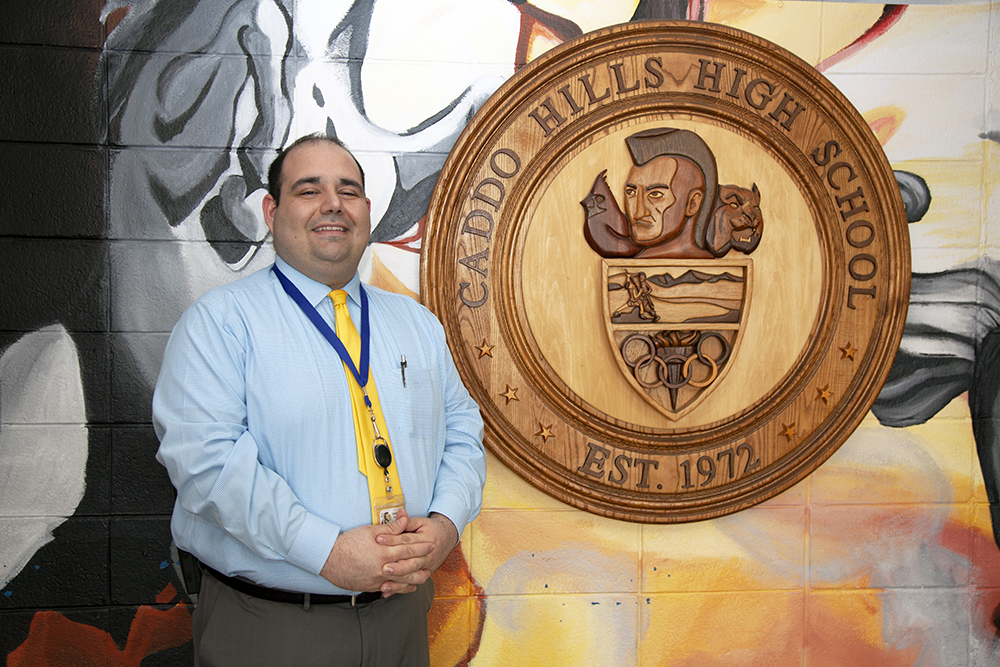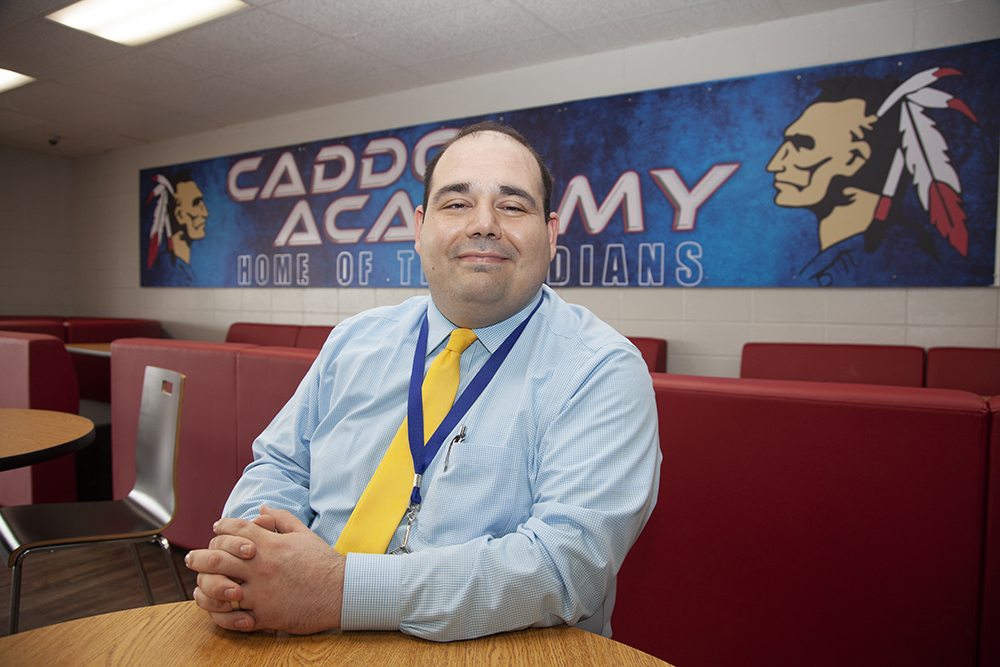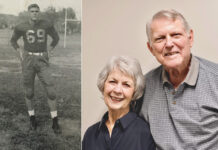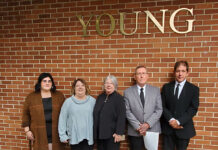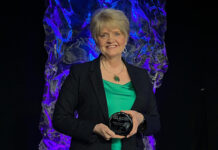Tucked away near the clear, cool waters of the Caddo River and the beauty of the Ouachita Mountains is a rural K-12 campus that has provided generations of Montgomery County youth with access to a better life through education.
As the Caddo Hills School District reached a half-century of service, Arkansas Tech University alumnus Justin Neel stepped forward to introduce an innovative approach to a fundamental goal: preparing students to create economic development and lead in their communities.
Neel, a 2022 graduate of ATU with a Master of Education degree in educational leadership, led a successful application that yielded a $1.25 million grant from the Arkansas Public School Resource Center to launch Caddo Academy at Caddo Hills High School.
Now, as principal of the school, Neel is overseeing the implementation of a program that could help reshape rural education in Arkansas.
“We have some outstanding folks who work great jobs in a lot of different sectors of the economy who live right here in Montgomery County,” said Neel, “but we also know there’s a greater global market out there where students may be able to perform well. We took all that information, and we went with entrepreneurship. It is multi-faceted and gives students opportunities to gain transferable skills that make them life ready and employable.”
Caddo Academy is Arkansas’ first entrepreneurship and community leadership-focused high school. It serves students in grades 7-12 through career planning and seven career pathways: agriculture, business with a banking emphasis, graphic design, video production, culinary arts, engineering and education. Practical applications of the skills learned in those programs while still in high school help students determine if they are on the path that aligns with their skills, interests and aspirations.
“We are a community built on ourselves,” said Neel. “We don’t have major corporations here that make things happen. When you go through an inventory of our staff, you see folks who went to school here and are back to invest in this community. They serve on their city council, they serve on their quorum court and they serve as volunteer firefighters. We knew our students needed some exposure to community leadership because we know ultimately our community is built off the future of our students and what they’re able to do.”
Neel’s mother worked in K-12 education as a custodian and bus driver. He attended school in places as diverse as Arkansas, Texas, South Carolina and Japan.
“My whole world revolved around the school,” said Neel. “It was a place I found people who had genuine love and care for others. I started to see the power that educators have to positively affect their community. I am the product of some really great schools. I had some wonderful educators who invested in my life and were there for me at some critical moments. I wanted to do that for others. I wanted to serve and be a part of my community in a positive way. That’s what got me excited about education.”
But teaching wasn’t Neel’s first career choice. After completing his bachelor’s degree, he went to work in a title office.
“The walls started closing in on me,” said Neel. “I made the decision to interview with some great schools, and I am thankful for Caddo Hills taking a chance on me.”
That was eight years ago. After establishing himself on the Caddo Hills faculty, Neel made the decision to take the next step in his education at Arkansas Tech.
“I knew I wanted my master’s degree and I knew I wanted to pursue administration within education, but I didn’t have very many supports in my life at that point to figure it out,” said Neel. “Several of my colleagues had attended Arkansas Tech. They had wonderful things to say about it, so I looked into it one night. The process was so easy. I applied and was accepted pretty quickly, and when I got connected with my advisor, Dr. (William) Morelan, he sealed the deal with the way he helped me plan out my graduate years. I chalk it up to the hand of God.”
Like many ATU alumni, Neel points to the personal attention he received from his instructors as the strength of his Arkansas Tech experience.
“I have to give all the credit to the professors,” said Neel. “They made their expectations very clear up front, which weren’t light, might I add. But, at the same time, through great course syllabi and documentation within the course shells, they gave us the outline. The professors worked to get to know us as students. I even had professors who would come and visit our school. When we launched the academy, my advisor, Dr. Morelan, was there. You’ll never know what that means to someone like me. I want to model that personal investment for my students. To have it, myself, as a student was so encouraging. There were days I didn’t know if I could do it, but my professors always showed up to assure me I could.”
With his master’s degree and the opportunity to lead a school in hand, Neel is paying forward the lessons he has learned.
“I’ve seen some of the very best practices, and I’ve seen some of the not-so best practices in an educational setting,” said Neel. “Academically, I had several inadequacies when it came to my performance. It took me a little bit longer to do stuff. But, as far as work ethic is concerned, I really take pride in the fact that I will try my absolute best. That’s what I’ve tried to demonstrate to my students as a classroom teacher and now as a principal.
“Work ethic is everything,” continued Neel. “When you put in those hard hours, the pay off is so good. I wanted to be in a position that supported students who struggle. I want to make sure we, as a school, are doing all we can to early identify and work on any educational deficiencies our students might have in order to ensure they don’t look at that as their setback. We want them to use it to push themselves forward.”
For the students at Caddo Academy, the fuel for that push forward is often involvement beyond the classroom.
“When we were presented with an opportunity to apply for this charter school program grant, we took that and asked what we were already doing that was working well,” said Neel. “We knew that students who were engaged in coursework and active within their organizations were more apt to do well in school. They were exposed to different opportunities, be that competitive events or a district or state office in the form of leadership. Ultimately, this empowered those students to make the right decisions for their career path. We wanted to design a school that really gets students life ready, whether that be a post-secondary educational option, a career focus or military service. We want to give students an opportunity to be ready for whatever they want to pursue.”
Life skills such as the importance of attendance, completing tasks with limited supervision and persisting until the job are done are embedded in the curriculum. “Helping students make the connection and seeing the value in education are the greatest rewards,” said Neel. “Education changed my life. I’m the first person in my immediate family to obtain a master’s degree. It’s a humbling experience because you really understand that education is the only thing that can never truly be taken away. Helping a student who may come from an unpleasant background and may have situations that some could never begin to imagine…helping them see the joy, excitement and opportunities that an education provides…that’s the most rewarding.
“When we’re able to bring the synergy of all these moving parts together and produce positive change, that’s the most awesome opportunity anyone could ever have,” continued Neel. “Educators change lives every day. I challenge and encourage those who want to pursue education as a career. It will be the best decision of your life if you invest in it with everything you’ve got.”
